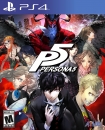Shatts said:
EpicRandy said:
The thing is monopoly was never an issue in this acquisition. MS will still only be 3rd place amongst publishers by revenue even after the transaction, making any claim about monopoly ludicrous from the start. Monopoly isn't defined by an emotional response to a change in the market or by gamers' partisan-fueled utopic should-be rules, it's defined by tangible effect and context on a market.
That is why you saw the FTC making a joke of market definitions trying to paint MS as having substantially more share than the reality. A console market that excludes Nintendo (by the way if ever there's really a way for MS to merge with Nintendo, you can thank FTC for defining them as in a different market making any merger attempts an easy vertical merger one instead of a way stricter horizontal one), a badly defined cloud market.
It's not that the FTC were clowns making a weak case using bad arguments when good was available, the FTC were clowns fighting a weak case that had no possible good arguments to begin with. And they knew it was the case that's why their initial strategy was to delay until MS/ABK could not sustain their agreement rather than fight in court.
And it's not like the FTC was the only one to talk here either, dozens of market authorities have allowed the transaction all over the world, and a lawsuit initiated by gamers and financed by Sony did not yield any result either. Even Sony's own internal communication shows this transaction was not anti-competitive or monopolistic.
|
I don't remember the full details tbh, but I'm pretty sure the FTC was arguing against established IPs going exclusive to Microsoft like Call of Duty. CMA was arguing about the cloud service being a monopoly, and I'll add that Windows is over 95% of operating system on gaming PCs. Isn't that monopoly?
-As a practical matter, a market share of greater than fifty percent has been necessary for courts to find the existence of monopoly power
If big companies like Microsoft can acquire huge third parties like Activision Blizzard and make them exclusive, then how are smaller companies supposed to compete directly? This doesn't create competition.
- Anti-competitive practices are business or government practices that prevent or reduce competition in a market. Antitrust laws ensure businesses do not engage in competitive practices that harm other, usually smaller, businesses or consumers.
Obviously market authorities from other countries don't care cuz Activision Blizzard and consoles are only big in certain countries. They don't see the impact.
|
FTC -
- Yes, and CoD going exclusive has been judged a non-issue by literally every other authority and the judgment in the FTC court case. that's the weak argument that relied upon, amongst other things, a market definition excluding Nintendo.
CMA -
- The use of "cloud market" was always bogus. The market was never big enough so MS would want to save it over a $70B transaction and so would pretty much be ready for any concession there from the start. The concession that the EU got because they engaged in good faith with MS to resolve any issue.
- There is no difference in content in the cloud market than other markets making MS early lead only because they made an early and serious push for it and only sustained by other actors' unwillingness to add cloud options and not because of any bindings holds or monopolistic practice from MS.
- Also, the market was badly defined by the CMA which led to a paradox in their conclusion of the impact of the transaction. Here are some thoughts I already made from the link I shared earlier :
The CMA found no issue with digital stores, likewise, they found no issue with multi-game subscription providers. But by their definition, they have an issue if an actor does or adds a cloud streaming feature. There's a paradox here. The CMA has taken issue because the remedies MS proposed only catered to BYOG business as they would have wanted to also support cloud providers with multi-game subscription models and others but again they found no issue with said business models if they don't propose a cloud feature.
This paradox makes it impossible for MS to propose actual remedies without having them address other markets outside the scope of the actual cloud market. In other words, by wanting MS to propose remedies to cloud providers with multi-game subscription services they are not actually benefiting the cloud aspect of those providers but the multi-game subscription one.
Let's say as a thought experiment, that the CMA did succeed and made MS commit to remedies for every business model of cloud providers there can be. What would prevent Epic Store, an actor judged not at risk by the CMA, to add a cloud streaming feature and claim the benefits of MS remedies? Likewise, if the CMA succeeded in forcing MS to license ABK titles to an actual cloud provider with a multi-game subscription service like Luna, what prevent Amazon from dropping Cloud streaming feature afterward or adding a download and install feature?
Windows -
- is not about Xbox
- overall usage was 90% 10 years ago and it's now 70% and declining (quite the opposite of what you would see in case of an entity exerting policy to create/sustain a monopoly)
- Gaming market shares making a monopoly out of Windows OS are again artificially limiting themselves to PC gaming overlooking mobile and console gaming which all feature different OS.
- even if we limit ourselves to PC gaming, the high share is only fueled by users and content creators' general overlook of alternatives, not any policy set by Microsoft to keep the status quo or other. Take the popular multiple Genshin impact, for instance, it's popular enough to be on pretty much everything, and they also have the resources to do so. Yet where is the macOS version, where is the Linux version? Can you point to any MS policy preventing its developers from supporting those? Dota2 and Csgo, the ever top 2 top-played Steam games both support OSX and Linux, and yet users still play them predominantly on Windows. Can you point to any MS policy preventing gamers from playing those on anything other than Windows?
-As a practical matter, a market share of greater than fifty percent has been necessary for courts to find the existence of monopoly power
*Can be* that's all depends on how a company is acting, Nvidia has a greater share of the GPU market than MS on the OS market and it's not a monopoly.
-If big companies like Microsoft can acquire huge third parties like Activision Blizzard and make them exclusive, then how are smaller companies supposed to compete directly? This doesn't create competition.
By continuing to do what they are, it's not without reason EA and many others went public stating how this transaction changed nothing for them. Having CoD under MS does nothing to lessen Ubisoft's Assassin Creeds fanbase or appeals nor it does for any other franchises. This is content creation with each product being unique not some factory producing a commodity X so cheap others cannot match their output and pricing.
- Anti-competitive practices are business or government practices that prevent or reduce competition in a market. Antitrust laws ensure businesses do not engage in competitive practices that harm other, usually smaller, businesses or consumers.
Yes, and this transaction has been judged not to create any of this by dozens of market authorities and has been ruled not at risk to do so when court challenged.
-Obviously market authorities from other countries don't care cuz Activision Blizzard and consoles are only big in certain countries. They don't see the impact.
Convenient when market authorities don't challenge, it's because they don't care, when they do and fail, it's because they're incompetent. Sony also did not saw the impacts or did not care when Jim Ryan wrote the infamous email apparently.
Of course, the vast majority of market authorities are the ones being blinded and very few that just so happen to have shown great desire to challenge big-tech whenever they can are supposed to be the ones seeing straight through things here, even though they make a joke of their case when they try to challenge it.
I guess any argument will fit if it means it can be an alternative to the more logical conclusion that this transaction simply does not rise to anything anti-competitive or monopolistic.
Last edited by EpicRandy - on 20 September 2023

























































